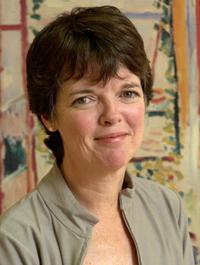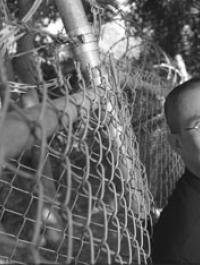THERESA
I’m worried she’ll be a fish out of water.
ROBERTA
When do we meet her? When’re they movin’?
THERESA
Not now. Soon. We’ll see. They’re waiting to see if Mingjing can transfer jobs.
ROBERTA puts down her cookie.
ROBERTA
What’s her name?
THERESA
Minjung.
ROBERTA
Theresa.
THERESA sips tea.
THERESA
She’s in architecture, works for a big firm out there
ROBERTA
(indicating the under-eye skin) Those dark circles, no wonder.
THERESA
But she might give it up and teach.
ROBERTA
You seen her only once?
THERESA
Tim never said any—why would I think
ROBERTA
Such a rush.
THERESA
My brain’s exploded.
ROBERTA
I knew it: how far gone is she?
Note: A male actor plays the roles of both THERESA and her son TIM. A second male actor plays the roles of both ROBERTA and her son ROBBIE.





